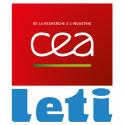M07 Low Power: Fixed-point refinement, a guaranteed approach towards energy efficient computing
Agenda
| Time | Label | Session |
|---|---|---|
| 09:30 | M07.1 | Fixed-point refinement, a guaranteed approach towards energy efficient computing: Part I Organiser: |
| 09:30 | M07.1.1 | 1. Introduction Olivier Sentieys, INRIA - University of Rennes 1, FR
|
| 09:45 | M07.1.2 | 2. Fixed-point arithmetic Olivier Sentieys, INRIA - University of Rennes 1, FR
|
| 10:15 | M07.1.3 | 3. Finite word-length effect analysis Daniel Menard, INSA Rennes/IETR, FR
|
| 11:30 | M07.2 | Fixed-point refinement, a guaranteed approach towards energy efficient computing: Part II Organiser: |
| 11:30 | M07.2.1 | 4. High-level synthesis under accuracy constraint Karthick Parashar, IMEC, BE
|
| 12:15 | M07.2.2 | 5. SIMD vectorization under accuracy constraint David Novo, EPFL, CH
|
| 12:35 | M07.2.3 | 6. Opportunistic run-time precision adaptation David Novo, EPFL, CH
|
| 12:50 | M07.2.4 | 7. Conclusion and open research directions David Novo, EPFL, CH |









